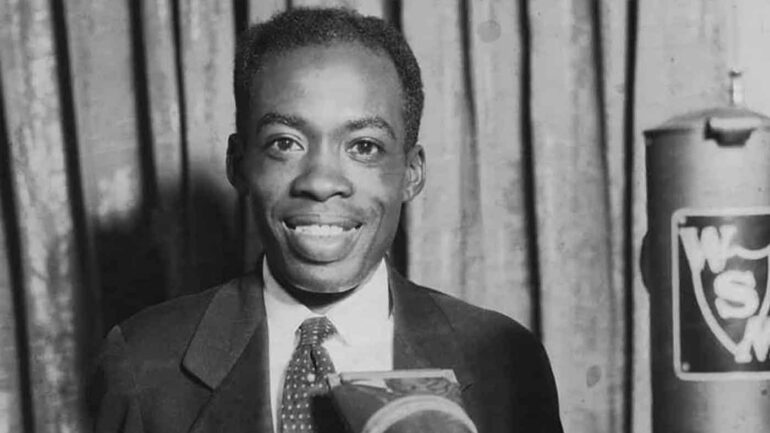In tribute to his remarkable influence on country music and blues, the city of Nashville will pay homage to DeFord Bailey by naming a street after him.
Recognized as the “Harmonica Wizard,” Bailey’s profound contributions as a trailblazer at the Grand Ole Opry has left an impact on country music history. This dedication will become an important part of Nashville’s rich history, securing the preservation of his extraordinary legacy for future generations.
On Saturday, May 20, the official naming ceremony for DeFord Bailey Avenue will take place in Nashville’s Edgehill neighborhood. This street holds significant meaning as it was the place where Bailey resided for the majority of his life until his passing in 1982. To commemorate this occasion, a special concert will be held after the dedication, featuring performances by two of Bailey’s grandsons, Carlos DeFord Bailey and Herchel Bailey.
Bailey’s path to stardom was filled with immense challenges that he managed to overcome.
In the 1920s, Bailey became a regular performer on the Grand Ole Opry. He was the first African American performer on the show and gained popularity for his skilled harmonica playing. Bailey’s unique style blended elements of blues, folk, and country music, and his performances were known for their energy and immense skill.
Despite his success and popularity, racial segregation and discrimination limited Bailey’s opportunities for recording and touring. He faced numerous challenges in the music industry, and his career suffered as a result. Bailey eventually left the Grand Ole Opry in 1941, and his visibility in the music scene declined.
In 1974, Bailey was recognized for his contributions to country music when he was inducted into the Country Music Hall of Fame. This honor brought renewed attention to his pioneering role in the genre. Bailey’s impact on harmonica playing and his influence on later musicians, including country and blues artists is undeniable.
DeFord Bailey’s legacy continues to inspire musicians and fans everywhere. His innovative harmonica playing and his role as a trailblazer for African American musicians in country music have left a permanent mark on the genre.


